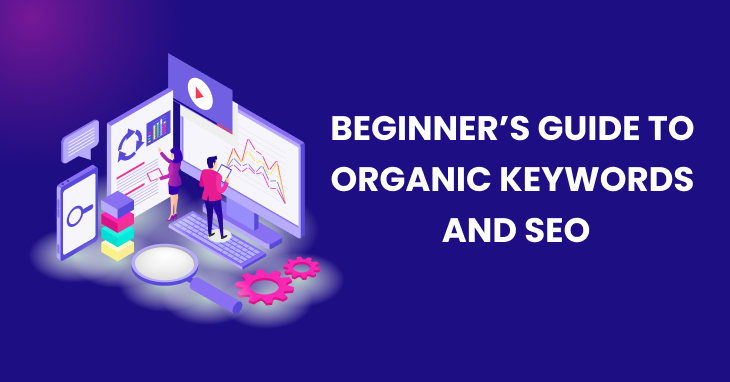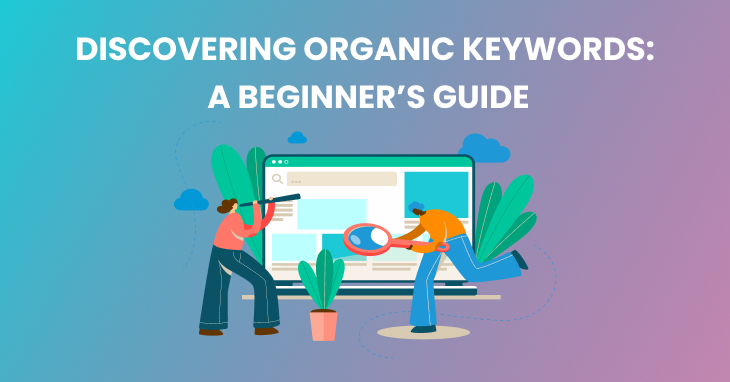I hope you enjoy reading this blog post.
If you want to get more traffic, Contact Us

Click Here - Free 30-Minute Strategy Session
Be quick! FREE spots are almost gone for this Month. Free Quote

Whether you’re a digital marketer or an ecommerce website owner, search engine optimisation (SEO) is crucial for online success. It enhances visibility and makes it easier for customers to find what they need.
An essential aspect of SEO is organic keywords. These are free keywords that attract organic search traffic. By optimising them effectively, you can even aim for featured snippets, boosting your click-through rate (CTR).

Click Here – Free 30-Minute Strategy Session
Be quick! FREE spots are almost gone for this Month
Read this beginner’s guide to grasp the fundamentals of organic keywords and improve your SEO strategy.

Organic keywords play a pivotal role in SEO by driving “free” traffic to your website. Unlike paid keywords used in PPC campaigns, organic keywords offer a cost-effective approach to online marketing.
Utilising organic search is highly valuable, considering that Google alone processes over 3.5 billion searches daily, equating to thousands of keyword queries per second. By conducting thorough keyword research and strategically selecting organic keywords, you can significantly enhance your website’s visibility.
Unlock the potential of organic keywords with our comprehensive guide to keyword research. Learn how to differentiate between organic and paid keywords and leverage the power of organic search to propel your online presence.
Learn More: What is SEO Keyword Research?

Finding organic keywords to boost your website’s visibility in search engine results requires effective research.
Here are several methods to discover valuable organic keywords:
So, how to get organic keywords?
Utilise Google Analytics
Leverage Google Analytics to identify the organic keywords driving traffic to your site. Navigate to “Behaviour” > “Site Content” > “Landing Pages” to access landing page reports. Explore the “Secondary Dimension” options like “Advertising” > “Keyword” to uncover valuable insights.
Harness Google Search Console
Access Google Search Console to view average ranking positions for keywords by landing page. Analyse the “Queries” column to identify keywords responsible for driving traffic. Focus on high-volume keywords with room for improvement in page rank.
Analyse Competitor’s Organic Keywords
Gain insights from competitor analysis by examining their organic keywords and successful content. Our Organic Research overview report can provide valuable data on competitors’ keyword rankings, landing pages, and traffic-driving terms.
Utilise Keyword Research Tools
Leverage keyword research tools to streamline the process of identifying organic keywords finder. These tools offer valuable insights and related keyword suggestions. Consider using reputable keyword research tools specific to your target platform.
Discovering organic keywords is crucial for enhancing your website’s visibility. Employ these techniques and tools to uncover valuable organic keywords and elevate your SEO strategy.
Learn More: Top 10 SEO Strategies in 2023

Implementing the tips will assist you in discovering a broader range of organic keywords, ultimately boosting your website’s search traffic.
For instance, leverage Google Analytics to identify top-performing landing pages and determine which keywords are worth further optimisation. Additionally, our keyword research guide provides valuable insights on evaluating organic keyword opportunities.
While expanding your organic keyword repertoire is beneficial, it’s important to avoid keyword stuffing. Search engine algorithms can detect content overloaded with excessive keywords, which provides little value to users and may have a negative impact on your rankings. Focus on delivering quality content that aligns with users’ search intent.
Take advantage of these strategies to uncover valuable organic keywords, optimise your content effectively, and drive targeted traffic to your website.
Learn More: Importance of Keyword Research
Search engine optimization (SEO) is an incredibly powerful tool for improving your website’s visibility and driving organic traffic. The great news is that you don’t need to be a technical genius to grasp the basics of SEO and put it into practice.
By understanding the fundamental principles of SEO, you can make strategic adjustments to your website and content that will positively impact your search rankings.
Here are a few key areas to focus on when learning basic SEO:
Remember, SEO is an ongoing process that requires continuous monitoring, analysis, and adaptation. By mastering the basics, you can lay a solid foundation for your website’s search engine visibility and long-term success.

LEAVE A REPLY